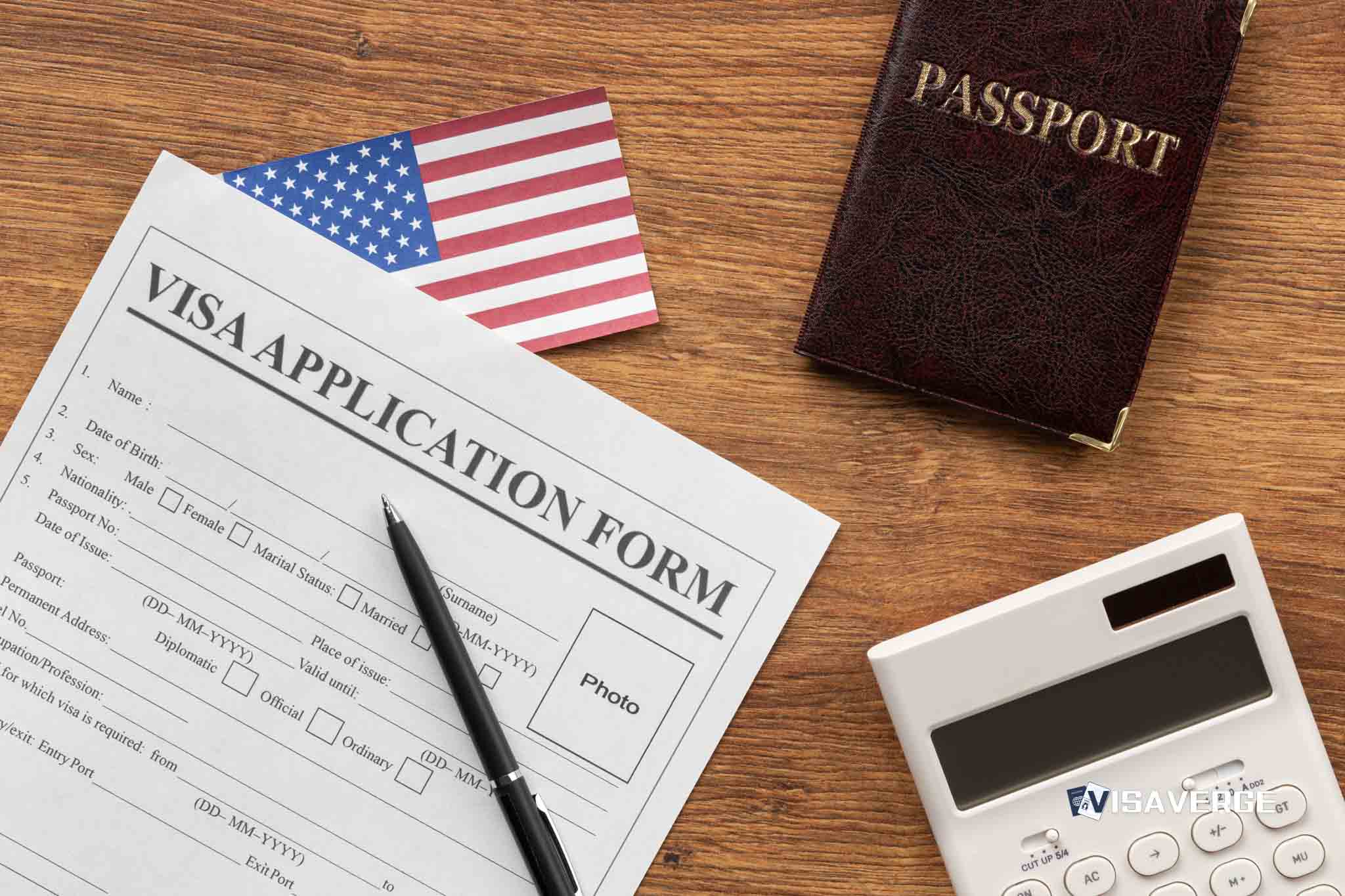Dual citizenship means a person is a citizen of two countries at the same time. This status brings significant advantages—like the freedom to live, study, work, and vote in both countries—but also real duties, including taxes and, in some countries, military service. The following is a clear, practical guide focused on who qualifies, how eligibility works (with examples), what documents you usually need, how the application process looks, and smart tips to meet requirements without trouble.
Who qualifies for dual citizenship
You may qualify for Dual citizenship in one of these ways:

- By Birth (jus soli): A country grants citizenship to anyone born on its soil.
- Example: A child born in the USA is a U.S. citizen by birth.
- By Descent (jus sanguinis): Citizenship passes through parents or grandparents, even if the child is born abroad.
- By Marriage: Some countries fast-track spouses of citizens for naturalization.
- By Naturalization: After lawfully living in a second country and meeting tests like language and civics, you can apply for citizenship there.
Important: Dual citizenship is only possible if both countries involved allow it. Some accept it fully, some limit it, and some ban it.
Countries that fully accept, restrict, or ban dual citizenship
- Full acceptance: United States 🇺🇸, United Kingdom, Canada 🇨🇦, Australia, New Zealand, France, Italy, Ireland, Portugal, Belgium, Switzerland, South Africa, Brazil, Mexico, Argentina, Philippines, Egypt, Turkey.
- Conditional or restricted: Germany, Netherlands, Japan, Singapore (rare cases), Norway. These may allow dual status only by descent, for minors, or with special approval.
- Prohibition: India, China, Indonesia, Saudi Arabia, Qatar, United Arab Emirates (UAE has narrow exceptions for certain investors and professionals).
Special notes:
– Spain mainly accepts dual status with Ibero‑American countries, the Philippines, Equatorial Guinea, and Andorra.
– Pakistan and Bangladesh allow dual citizenship only with certain countries.
– India does not allow dual citizenship but offers an Overseas Citizen of India (OCI) card, which is not the same as citizenship.
Detailed eligibility with examples
1) By Birth in the USA
– If you’re born in the USA, you’re a U.S. citizen “by birth.”
– If your parents are citizens of a country that grants citizenship by descent, you could hold both—if that other country allows dual status.
– Example: A child born in the USA to Italian parents could be U.S. by birth and Italian by descent, because both countries allow dual citizenship.
In contrast, a child born in the USA to Indian parents receives U.S. citizenship by birth, but India does not allow dual citizenship; the family should consider India’s OCI option instead.
2) By Descent from another country
– If your parent or grandparent was a citizen of a country that grants descent-based citizenship, you may qualify.
– Each country has its own rules on how many generations count, what proof is needed, and whether registration is required before a certain age.
3) By Marriage
– Marrying a citizen may shorten the path to naturalization in that spouse’s country.
– You must check whether both countries let you keep your original citizenship after you naturalize.
4) By Naturalization
– If you hold permanent residence in a country and meet time-in-country, language, and character rules, you can apply for citizenship.
– If your home country and the new country both permit dual status, you can usually keep both passports. If one bans it, you may be asked to renounce.
Rights and duties for dual citizens
- Rights:
- Live and work in both countries
- Vote (if allowed)
- Access public schools and healthcare (subject to local rules)
- Carry two passports
- Duties:
- Follow laws of both countries
- Meet tax obligations
- Complete military service where required
- Some public jobs may be off-limits unless you have only one citizenship
Required documentation (common sets)
Every country sets its own documents, but these lists are typical.
Proof of identity and status
– Valid passports from both countries (if already dual) or from your current country
– Birth certificate showing place of birth (key for USA By Birth claims)
– Marriage certificate (if applying through marriage)
– Naturalization certificate(s), if any
Proof of descent
– Parents’ or grandparents’ birth certificates and passports
– Marriage records linking generations
– Name change documents (if any)
– Where needed, registration of birth at a consulate
Criminal and residency records
– Police clearance certificates as required by the country where you apply
– Proof of legal residence (permits, visas, entry/exit stamps)
– Proof of physical presence (rent agreements, utility bills, school or work records)
Translations and legalization
– Certified translations to the required language
– Apostille or consular legalization if documents are from another country
U.S.-specific notes and forms
- If you were born in the USA, your U.S. birth certificate is primary proof of citizenship.
- For U.S. passports:
- Use Form DS-11 for first-time applicants and DS-82 for renewals.
- Official instructions and forms are on the U.S. Department of State website.
- For authoritative government guidance on dual nationality, review the State Department’s Dual Nationality guidance under U.S. citizenship pages. It explains rights, protection limits abroad, and practical travel tips.
- Tax filing for U.S. citizens abroad uses IRS Form 1040 each year; official instructions are on the IRS site.
Application process overview (generalized)
- Confirm both countries’ laws
- Check whether both countries permit dual citizenship and in what circumstances.
- If one country bans it, ask whether you must renounce or if limited exceptions exist.
- Verify your path
- By Birth in the USA: Gather your U.S. birth certificate and proof of the other country’s descent rules.
- By Descent: Collect civil records for parents/grandparents and show the family link.
- By Marriage: Confirm marriage length, residence rules, and language/civics requirements.
- By Naturalization: Confirm residence time, language testing, civics testing, and good character checks.
- Prepare documents
- Order certified copies, arrange translations, and get apostilles or consular stamps as required.
- Keep a master file and checklist—missing one page can delay months.
- File applications
- Submit forms to the correct agency (interior ministry, immigration office, or consulate).
- Pay fees and book biometrics or interviews if required.
- Attend interview/testing
- Some countries require language or civics tests. Study guides are usually available on government sites.
- Receive decision and complete oath
- If approved, take the oath if required and then apply for your passport.
- Maintain both statuses
- Renew passports on time.
- Update civil records (marriage, births) with both countries.
- Track tax obligations each year.
Taxes: what dual citizens need to know
- Worldwide income taxation: The United States taxes citizens on worldwide income even if they live abroad. You must file an annual U.S. tax return if you meet income thresholds.
- Residence-based taxation: Most other countries tax you if you live there. For example, if you live in Canada 🇨🇦 but also hold Australian citizenship, you generally pay Canadian tax on Canadian income, with special rules for foreign income.
- Double Taxation Agreements (DTAs): Treaties reduce the risk of being taxed twice by giving credits or assigning taxing rights.
- Special income types: Pensions, property sales, dividends, and business profits can be taxed differently across countries—plan ahead.
- Compliance burden: Extra forms may include foreign bank reports. For U.S. persons, FATCA rules apply and penalties can be high.
Practical tax tips
– Know your tax residency each year—keep a simple log of days in each country.
– Check treaty benefits before filing. DTAs can lower or remove double tax.
– Keep clean records: invoices, payslips, bank statements, and proof of tax paid.
– File on time. If abroad, use available extensions and keep proof of mailing.
– Consult a cross-border tax professional when you have investments, a home sale, or an international move.
Common concerns and real-life examples
- USA By Birth with a descent claim:
- Sofia was born in the USA and later applied for Irish citizenship through her grandmother. Ireland allows descent-based citizenship and the USA allows dual citizenship, so Sofia now carries two passports. She files U.S. taxes annually and checks U.S.–Ireland treaty rules to avoid double tax.
- Marriage path in a restricted country:
- Ken, a U.S. citizen, married a citizen of Japan. Japan is restrictive about dual status for adults. Ken could seek residence and later naturalize in Japan, but he may be asked to give up his U.S. citizenship. He should confirm the latest rules before starting.
- Prohibition example:
- Priya, a U.S. citizen born in the USA to Indian parents, cannot hold Indian citizenship alongside U.S. citizenship because India bans dual status. She may consider the OCI card to visit and work in India with some benefits, but it is not citizenship.
For clear U.S. government guidance on dual nationality, see the U.S. Department of State’s page on dual nationality under U.S. citizenship topics. It explains travel with two passports, consular protection limits, and issues like military service and taxes when abroad.
Key documents and where to find forms
- U.S. Passport application: Form DS-11 (first-time) and DS-82 (renewal) — available on the State Department’s official site with instructions and fee details.
- U.S. tax return: IRS Form 1040 and instructions — posted by the Internal Revenue Service. Always download current-year versions.
According to analysis by VisaVerge.com, the best first step is to map both countries’ rules side by side. A simple two-column list—what’s allowed, what’s restricted, and what you must report—helps families avoid missed steps, especially in “By Birth” cases and descent claims.
Practical tips for meeting requirements
- Start early: Birth, marriage, and naturalization records can take weeks or months to obtain or legalize.
- Translate correctly: Use certified translators. Wrong names or dates cause delays.
- Keep name consistency: Ensure names match across passports, birth records, and marriage certificates. Add legal name change documents if needed.
- Track deadlines: Some countries require registering a birth abroad within a set time to lock in descent.
- Plan travel: If one passport is in processing, check if you can travel on the other and whether visas are needed.
- Confirm military duty rules if you’re within the age range in either country.
- Review public office limits if your career could involve government service.
Final takeaways and next steps
- Check both countries’ laws first. Dual citizenship depends on both sides, not just one.
- Confirm your path: By Birth, by descent, by marriage, or by naturalization.
- Build a complete document file with certified copies, translations, and apostilles.
- File the right forms using official links, keep proof of submission, and attend interviews or tests as required.
- Plan for taxes each year, use treaty benefits, and get professional advice before big moves or sales.
- Keep both passports valid and your records up to date so your dual status stays secure.
This Article in a Nutshell













